24. Lottin, Chavatte, 141; Pieter Spierenburg, "Knife Fighting and Popular Codes of Honor in Early Modem Amsterdam," in Pieter Spierenburg, ed., Men and Violence: Gender, Honor, and Rituals in Modem Europe and America (Columbus, Ohio, 1998), 108; Ann Tlusty, "The Devil's Altar: The Tavern and Society in Early Modem Augsburg (Germany)" (Ph. D. diss., Univ. of Maryland, 1994), 184; OBP, Sept. 11, 1735, 110; The Countryman's Guide to London or, Villainy Detected… (London, 1775), 78; Thomas Brennan, Public Drinking and Popular Culture in Eighteenth-Century Paris (Princeton, N. J., 1988), 282–283, passim; Merry E. Wiesner, Working Women in Renaissance Germany (New Brunswick, N. J., 1986), 133–134; Daniel Roche, The People of Paris: An Essay in Popular Culture in the 18th Century, trans. Marie Evans (Leamington Spa, Eng., 1987), 255; Feb. 3,1772, Carter, Diary, II, 649.
25. Hardy, The Life and Death of the Mayor of Casterbridge: A Story of a Man of Character (New York, 1984), 307.
26. Erskine Beveridge, comp., and J. D. Westwood, ed., Fergusson's Scottish Proverbs… (Edinburgh, 1924), 39; Legg, Low-Life, 21; Bargellini, "Vita Notturna," 83; F. Platter, Journal, 89–90; Fernando de Rojas, The Celestina: A Novel in Dialogue, trans. Lesley Byrd Simpson (Berkeley, Calif., 1971), 81; Ernest A Gray, ed., The Diary of a Surgeon in the Year 1751–1752 (New York, 1937), 74–75; WJ, Mar. 20,1725.
27. Laura Gowing, "'The Freedom of the Streets': Women and Social Space, 1560–1640," in Mark S. R Jenner and Paul Griffiths, eds., Londinopolis: Essays in the Cultural and Social History of Early Modem London (Manchester, 2000), 143; Linda A. Pollock, "Parent-Child Relations," in FLEMT, 215–217; Alan Williams, The Police of Paris, 1718–1789 (Baton Rouge, 1979), 196; Jane Brewerton, Feb. 29,1760, Assi 45/26/4/6.
28. Jan. 23, 1574, J. H. Van Eeghen, Ed., Dagboek Van Broeder Wouter Jacobsz (Gualtherus Jacobi Masius Prior Van Stein: Amsterdam, 1572–1578, En Montfoort, 1578–1579, Gronningen, Neth., 1959), 359.
29. Thomas Dekker, The Seven Deadly Sinnes of London, ed. H. F. B. Brett-Smith (New York, 1922), 41; Nicolas-Edme Restif de la Bretonne, Les Nuits de Paris or the Nocturnal Spectator (New York, 1964), 68; Select Trials, II, 11; Legg, Low-Life, 100; Wilson, English Proverbs, 542; OED, s. v. "flitting."
30. Dekker, Writings, 230; Richard Head, The Canting Academy; or Villanies Discovered… (London, 1674), 37, 40; Roger B. Manning, Village Revolts: Social Protest and Popular Disturbances in England, 1509–1640 (Oxford, 1988), 173; Gilbert Slater, The English Peasantry and the Enclosure of Common Fields (1907; rpt. edn., New York, 1968), 119–120; Hugh Evans, The Gorse Glen, trans. E. Morgan Humphreys (Liverpool, 1948), 70.
31. Carol F. Karlsen, The Devil in the Shape of a Woman: Witchcraft in Colonial New England (New York, 1987), 159; Alan Taylor, "The Early Republic's Supernatural Economy: Treasure Seeking in the American Northeast, 1780–1830," American Quarterly 38 (1986), 6—34 (Я благодарю Алана Тэйлора за предоставление мне копии своей статьи); William W. Hagen, Ordinary Prussians: Brandenburg, Junkers and Villagers, 1500–1840 (Cambridge, 2002), 479; W. R. Jones, "'Hill-Diggers' and 'Hell-Raisers': Treasure Hunting and the Supernatural in Old and New England," in Peter Benes, ed., Wonders of the Invisible World: 1600–1900 (Boston, 1995), 97—106. См. также: Benjamin Franklin, Writings, ed. J. A. Leo Lemay (New York, 1987), 113–115.
32. PA, Jan. 3,1786; Rose, ed., Slavery, 460; Malcolm Letts, "Johannes Butzbach, a Wandering Scholar of the Fifteenth Century," English Historical Review 32 (1917), 31; Thomas, Religion and the Decline of Magic, 506–523; H. C. Erik Midelfort, "Were There Really Witches," in Robert M. Kingdon, ed., Transition and Revolution: Problems and Issues of European Renaissance and Reformation History (Minneapolis, 1974), 198–199; David Thomas König, Law and Society in Puritan Massachusetts: Essex County, 1629–1692 (Chapel Hill, N. C, 1979), 145–179, passim.
33. Karlsen, Shape of a Woman, 140; SWP, II, 413; NHTR, II, 130–131.
34. Pinkerton, Travels, III, 316; Carmina Medii Aevi (Torino, 1961), 35; Jütte, Poverty, 152–153. См. также: Letters from Barbary, France, Spain, Portugal… (London, 1788), II, 113.
35. June 2,1663, Pepys, Diary, IV, 171, Beattie, Crime, 173–175. См. также: Best, Books, 35.
36. Domestic Management, or the Art of Conducting a Family; with Instructions to Servants in General (London, 1740), 59; Pinkerton, Trawls, III, 316; Mar. 22,1770, Carter, Diary, I, 372; John Greaves Nail, ed., Etymological and Comparative Glossary of the Dialect of East Anglia (London, 1866), 521; William Hector, ed., Selections from the Judicial Records of Renfrewshire… (Paisley, Scot., 1876), 203–204.
37. Newton D. Mereness, ed., Travels in the American Colonies, 1690–1783 (New York, 1916), 592, 606–607; John C. Fitzpatrick, ed., The Writings of George Washington (Washington, D.C., 1939), XXXII, 264; Richard Parkinson, The Experienced Farmer's Tour in America (London, 1805), 446–447; James M. Rosenheim, ed., The Notebook of Robert Doughty, 1662–1665 (Norfolk, 1989), 39; Morgan, Slave Counterpoint, passim.
38. Manning, Village Revolts, 296, 284–305, passim; Rachel N. Klein, "Ordering the Backcountry: The South Carolina Regulation," WMQ, 3rd Ser., 38 (1981), 671–672.
39. Robert Bell, Early Ballads… (London, 1889), 436–437; David Davies, The Case of Labourers in Husbandry… (Dublin, 1796), 77; Spike Mays, Reuben's Corner (London, 1969), 197; Frank McLynn, Crime and Punishment in Eighteenth-Century England (London, 1989), 172–197. См. также: Walker's Hibernian Magazine, April 1792,296.
40. LEP, Oct. 5,1738; Arthur Walter Slater, ed., Autobiographical Memoir of Joseph Jewell, 1763–1846 (London, 1964), 134; Cal Winslow, "Sussex Smugglers," in Douglas Hay et al, eds., Albion's Fatal Tret. Crime and Society in Eighteenth-Century England (New York, 1975), 119–166; Hufton, Poor of Eighteenth-Century France, 284–305.
41. Defoe, Tour, 1,123; OED, s. v. "owler"; McLynn, Crime and Punishment, 177; Burton E. Stevenson, The Home Book of Proverbs, Maxims and Familiar Phrases (New York, 1948), 1623; Eric Partridge, ed., A Dictionary of the Underworld… (New York, 1950), 449; Dec. 13,1794, Woodforde, Diary, IV, 160, passim; Slater, ed., Jewell Memoir, 135; "Extract of a Letter from Orford" LC, March 23,1782; John Kelso Hunter, The Retrospect of an Artist's Life: Memorials of West Countrymen and Manners of the Past Half Century (Kilmarnock, Scot., 1912), 42.
42. T. J. A. Le Goff and D. M. G. Sutherland "The Revolution and the Rural Community in Eighteenth-Century Brittany," PP 62 (1974), 100; Jütte, Poverty, 153–156. В отличие от контрабанды, разграбление кораблей, потерпевших крушение, жителями побережья не было исключительно ночным видом преступления. Несмотря на изредка звучавшие голословные обвинения в том, что на берегу зажигались фальшивые сигнальные огни, приведшие к кораблекрушению, свидетельств этому крайне мало. В основном мародеры грабили суда, как только могли до них добраться, вне зависимости от того, какое было время суток. См.: "An Act for Enforcing the Laws Against Persons Who Shall Steal or Detain Shipwrecked Goods…," 26 George II c. 19; W. H. Porter, A Penman’s Story (London, 1965), 129; John G. Rule, "Wrecking and Coastal Plunder," in Hay et al., eds., Albion's Fatal Tree, 180–181.
Читать дальше
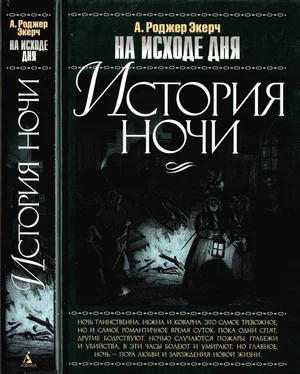

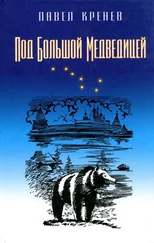
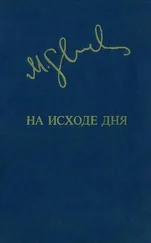
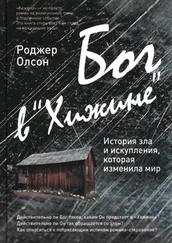
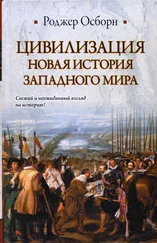
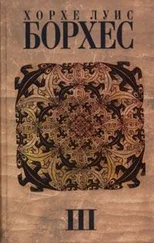
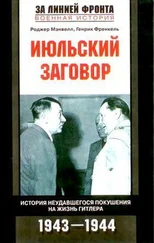
![Елена Асеева - Четыре дня, четыре ночи [СИ]](/books/419112/elena-aseeva-chetyre-dnya-chetyre-nochi-si-thumb.webp)

